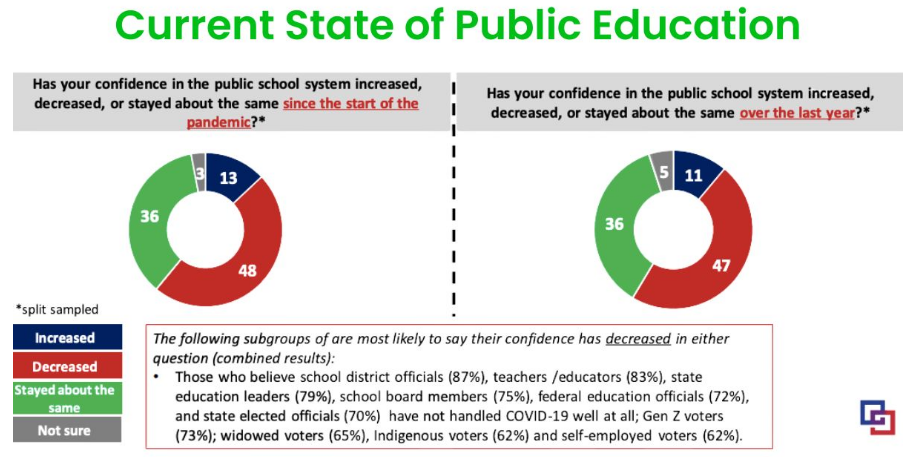 Editor’s note: This analysis from Javaid Siddiqi, president and CEO of The Hunt Institute, looks at a new national poll the institute conducted that found literacy, school safety, workforce training and mental health are top issues for voters and parents. It appeared last week on the74million.org.
Editor’s note: This analysis from Javaid Siddiqi, president and CEO of The Hunt Institute, looks at a new national poll the institute conducted that found literacy, school safety, workforce training and mental health are top issues for voters and parents. It appeared last week on the74million.org.
The past two years have been inundated with media buzz about critical race theory, book banning and anti-transgender legislation surrounding athletics and restrooms, among other hot-button topics. With each article and soundbite, a wave of emotional responses follows.
But are these issues truly top of mind for most parents and voters?
With students continuing to deal with major learning loss, states confronting an educator workforce crisis in high-needs areas like special education and STEM, and overall confidence in public schools declining, understanding what the public wants out of our education system is critical to the nation’s recovery and to rebuilding trust in its institutions of learning.
During my 20 years in education, connecting with students, families and educators grounded my understanding of the challenges and wins experienced by those most impacted by education policies. Their perspectives drove my decision-making from my time as a teacher and school leader to my position as Virginia’s secretary of education and now my role leading The Hunt Institute.
So how do Americans truly feel about public education, and what do they want to see?
As part of the institute’s public engagement initiative, we surveyed voters across the country to learn more about their priorities. We’re finding that workforce and real-world training, school safety, literacy and student mental health are all top issues for voters and parents.
More than 7 in 10 voters believe the country needs to ensure that students are reading at their appropriate grade level, and nearly half don’t believe the schools are teaching real-world skills for the future workforce. Voters also want additional counseling and social, emotional and mental health supports for students, indicating that “social-emotional learning” may not be the kind of dog-whistle issue it is sometimes portrayed to be.
And in a year of record-breaking school shootings, nearly 8 in 10 voters believe more must be done to ensure public schools are free of guns and other forms of physical violence.
To continue reading, click here.


